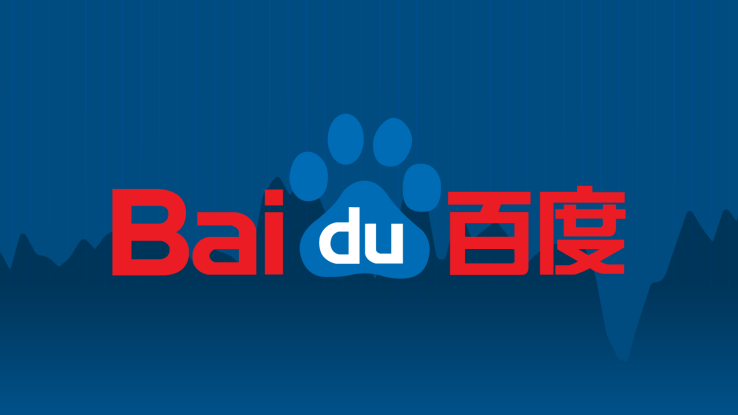If you want to put your products and services in front of 800 million Chinese netizens, ranking high on Google alone is not going to cut it. You need to improve your website SEO for Baidu.
While Google dominates the internet search market in the west, Baidu, China’s home grown search engine commands roughly 70% of the search market in China. To make things even worse for Google, its services are largely inaccessible in mainland China after the company exited the China market around 2010 for political reasons.
In light of this, it is imperative for western companies who try to get the attention of the rapidly growing Chinese middle class to rank high on Baidu searches. Problem is: Baidu is not Google; the differences between these two search engines are significant enough that a high ranking site on Google might not rank at all on Baidu.
So how do you improve your website SEO for Baidu? In this blog post, we would like to highlight some Baidu SEO best practices for your references:
China Specific Factors
- Language. It is a must to present your content in Chinese language if you wish to be indexed and rank high on Baidu. There are two types of Chinese characters: Simplified Chinese and Traditional Chinese, Baidu gives strong preference to the former, since it is the standard written language in mainland China and Singapore. Websites written in foreign languages such as English, French or German are not always indexed by Baidu and they rarely rank high on Baidu’s search result pages.
- Hosting. Baidu likes website hosted on servers located in China. This preference might be the result of several factors combined. In general, a website hosted in China loads faster, because it is not hindered by the Great Firewall of China; it has to display an ICP license, which means the site content has been reviewed and the site operator’s identity has been verified.
- Domain Name. Baidu gives preference to website with “.cn” domain name. While you do see “.com” and “.net” websites rank high on Baidu, with everything else being equal, Baidu will rank a “.cn” site higher.
- ICP License. To get hosting and publish a website in China, you must apply and obtain an ICP license. This license must be clearly displayed on your website, usually in the footer. Although Baidu never officially requires it, but I have never seen a website without an ICP license on the first page of Baidu SERP. For more details, check out our ICP License Application page.
Content Optimization
- Self Censorship. Pornography, Gambling and anti government content are banned by Baidu, you should try hard not to have any such content on your website. Otherwise, your site might be banned.
- Meta Tags. While Meta Tags are important for good SEO in general, Baidu’s search algorithm places even more weight on tags when compared to its western counterparts, as it lacks the sophistication of Google’s crawler in extracting information independent of meta-tags.
- Title Tags. Make sure to include your Chinese keywords and brand name in the title tags.
- Meta-Descriptions play a bigger role in Baidu SEO than they do in Google. It is beneficial to include keywords in your meta-descriptions in order to rank higher on Baidu.
- Alt-Tags are often overlooked by western brands. They often reuse images tagged with English keywords on their Chinese website, which Baidu will ignore.
- H-Tags are used by Baidu in roughly the same way as Google. Your Chinese keywords should be included in your H1 or H2 titles.
- New and Unique Content are valued by Baidu. Make sure to update your content frequently, a blog is usually an effective way to keep your site fresh with content and your readers interested, which leads to higher rankings on Baidu.
- Placement of keywords is an important factor in improving your Baidu SEO ranking, just like in Google search. It is recommended to place them at the top of your page.
Technical Optimization
- Site Speed is an important factor for Baidu SEO ranking. Hosing your website in China will give you an edge as the Great Firewall of China slows down all websites hosted outside of China, sometimes to a crawl.
- Eliminate API calls to Google servers. Because Google servers are not reachable from China, your website might be very slow to load it calls Google for fonts, analytics and other services.
- Use a Chinese CDN to speed up your website is a good idea.
- Utilize Baidu WebMaster Tool to keep track and fix broken links and inform Baidu of website changes. Please note this tool is in Chinese language only.
- Use HTTPS and encryption with caution. Baidu does not seem to index HTTPS websites very well. While HTTPS is increasingly popular in the west, it has limited significance in China as most online transactions are handled on Alipay or WeChat Pay servers or in their mobile apps.
Link Building
- More is better for Baidu. While Google put a lot of weight on link quality, Baidu still seems to care more about how many external links you have, that does not mean you should indiscriminately link to your site however, as Baidu is increasingly fine tuning its algorithm to check the quality of those links, it is just a little behind the curve when compared with Google.
- Mutual Linking is very popular in China. Many sites would link to high traffic sites such as Tmall.com or Sina.com.cn under the Mutual Linking arrangement, it is normal practice and these larger sites usually have rules governing this arrangement and teams verify and manage these links. Usually they will require your site have met certain criteria before exchanging links with you.
- Getting Links from Key Influencer. Chinese bloggers often have huge followings their western counterparts can only dream of. Many of them may agree to link to your site, but they may also demand some monetary compensation, it is a business arrangement after all.
Conclusion
Getting indexed and ranked well on Baidu is not as simple as one might think. It requires your SEO team to understand both the commonality and differences between Baidu and Google; it also requires you understand the Chinese language, culture and local business practices.
Getting set-up in China requires experience, knowledge and skills that are not common among western digital marketing teams. To succeed in China market, you need either seasoned team members who are experts in both western and Chinese digital marketing, or, you partner with an external agency who specialize in Chinese marketing such as Fei Digital. To learn more about our services and get in touch with us, visit our contact page.








Leave a Comment